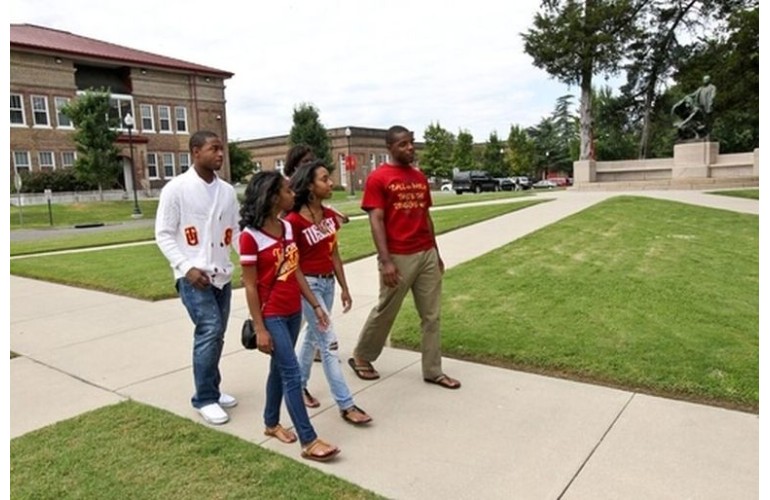 Subscribe
Subscribe- Login
-
/
Sign Up
- US Black Engineer
- >>
- Articles
- >>
- EDUCATION
- >>
- On Campus
- >>
- Tuskegee makes computer science fun
A recent $300,000 grant from the National Science Foundation will enhance Tuskegee University’s outreach on cultivating interest in STEM-related disciplines.
The grant, part of NSF’s INCLUDES —Inclusion across the Nation of Communities of Learners of Underrepresented Discoverers in Engineering and Science— program, will help Tuskegee faculty develop a blueprint for a computer science curriculum focused on eighth graders in Alabama’s Dallas, Hale and Macon counties.
Tuskegee faculty will offer teachers in these three counties’ school districts professional development to ready them to teach the new computer science curriculum in the 2018-19 school year.
“Through this NSF-funded effort, our team will design a prototype model for computer science education, that hopefully will later expand to include all middle-school students in Alabama’s Black Belt,” said Dr. Shaik Jeelani, Tuskegee’s vice president for research and dean of graduate studies. “The long-term, broader impact for this underserved region of the country is potentially significant, considering that such educational opportunities like this often are reserved for more privileged school districts.”
The model curriculum will feature hands-on activities intended to make computer science learning enjoyable.
It will rely on the “learning by making” educational style, where students create a computer science-based product (such as a robot) and learn the concepts that make the product work.
This hands-on approach has the potential to motivate diverse student populations to study in higher-level computer science disciplines during and after high school, and later to join the computer science workforce, which currently is in need of more qualified workers.
Tuskegee’s project is one of 27 across the nation funded through the NSF INCLUDES program, aimed at enhancing U.S. leadership in science, technology, engineering and mathematics (STEM) discoveries and innovations through a commitment to diversity and inclusion.
Additional funding would allow Jeelani and his team to expand its educational outreach to middle schoolers in all of Alabama’s 18-county Black Belt region.
“Our current alliance includes institutions of higher education, K-12 administrators and teachers, business and civic organizations,” Jeelani said. “Our partners’ expertise in computer science education will be vital to the success and further expansion of the project.”
The Tuskegee alliance includes Jeelani, who serves on the faculty of the university’s Department of Materials Science and Engineering, team members include Dr. Mohammed A. Qazi, professor of mathematics, as well as Department of Computer Science faculty; Dr. Hira Narang, professor and department head; and assistant professors Dr. Cassandra Thomas and Dr. Yasmeen Rawajfih.


